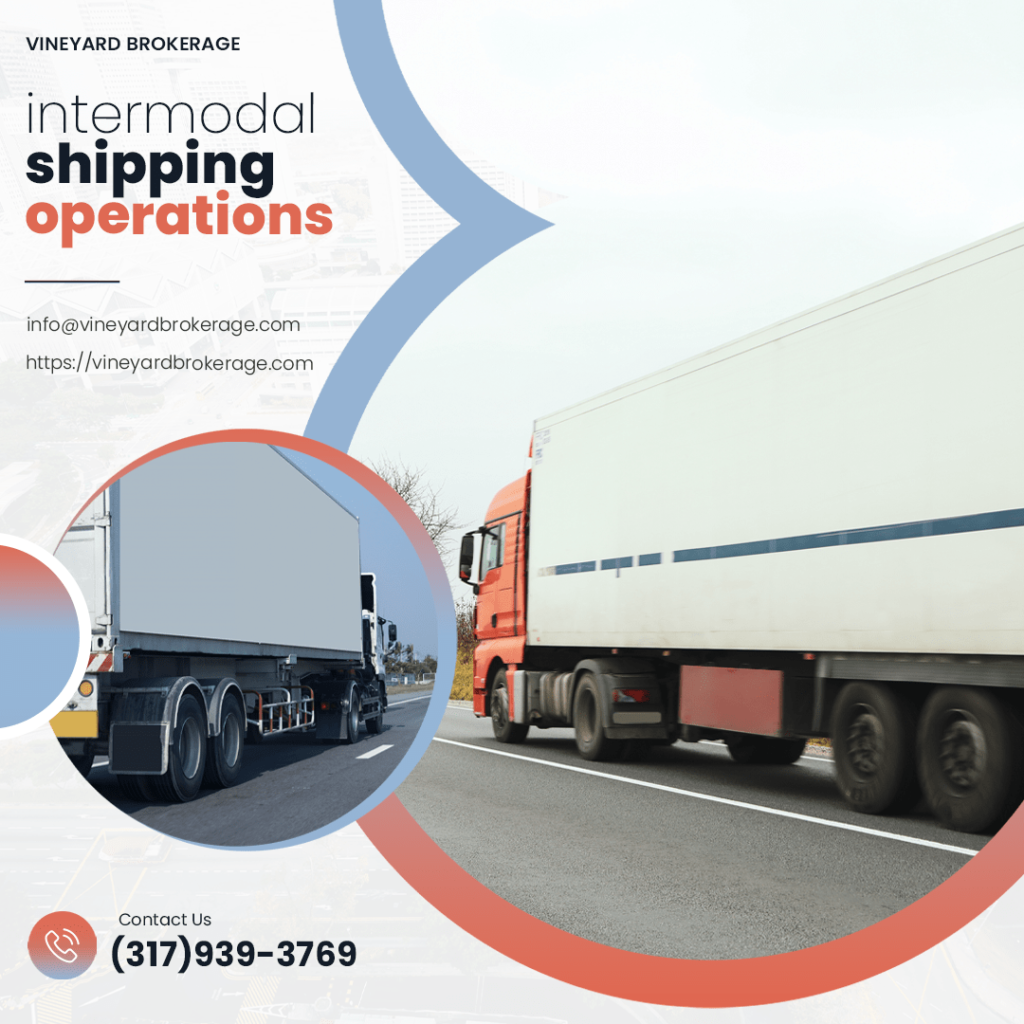Best practices for successful intermodal shipping operations

Intermodal shipping refers to the transportation of goods using different modes of transportation such as trucks, trains, ships and planes. An efficient and successful intermodal shipping operation requires careful planning and execution. In this article, we will discuss some best practices for successful intermodal shipping operations.
Plan ahead
One of the most critical steps to a successful intermodal shipping operation is planning ahead. This includes the detailed planning of the route, the types of equipment required, and the coordination of all the modes of transportation. Planning ahead helps to avoid time and cost overruns, ensure the safety of both goods and personnel, and ensure that the necessary equipment is available. Effective communication with all stakeholders, including suppliers, carriers, and customers, is critical for successful planning.
Select the Right Mode
To ensure the most efficient intermodal shipping operation, it’s essential to choose the suitable mode of transportation for the type of goods being transported. For instance, shipping bulk goods over long distances is typically more cost-effective by rail, while smaller packages over shorter distances may be more efficiently transported by truck. Careful consideration must be given to the type of goods, the distance traveled, and transportation timelines to select the most suitable and cost-effective mode of transportation.
Optimize Loading Strategies
Another essential aspect of successful intermodal shipping operations is the efficient management of loading and unloading. Often, different loading strategies are required for different modes of transportation. This involves using the appropriate packaging solutions and stacking goods to fit into the available space efficiently. Proper loading and unloading strategies help to reduce damage to goods, increase the efficiency of unloading and loading times and reduce overall transportation costs.
Monitor Traffic and Tracking Systems
Effective tracking and monitoring of transportation systems and traffic help to avoid delays, reduce transportation costs and ensure efficient management of the whole intermodal shipping operation. This includes real-time monitoring of traffic, weather conditions and GPS tracking of container movements. By utilizing modern tracking and traffic management systems, it’s possible to identify and fix issues or potential delays in real-time and take corrective action before they develop into bigger problems.
Manage Carrier Relationships
Successful intermodal shipping operations require efficient management of carrier relationships. Strong and reliable connections with carriers help to ensure timely delivery and avoid potential delays. Monitoring carrier performance ensures effective management of quality control standards and rectification of any issues that arise in real-time. Maintaining good relationships with carriers also provides a wealth of knowledge, insights and, most importantly, helps to make the overall transportation process more efficient.
Ensure Safety and Compliance
Finally, ensuring safety and compliance with all relevant transportation regulations is essential to the success of intermodal shipping operations. It’s imperative to ensure proper training for staff and carriers. This includes implementing appropriate safety protocols and clear communication of safety guidelines. Implementing safety and compliance certification helps to achieve safe transport of goods, minimize the risk of accidents, protect the safety of personnel, and avoid potential legal issues.
Final Thoughts
Successful intermodal shipping operations require a detailed plan, the use of the most suitable mode of transportation for specific goods, optimized loading and unloading strategies, real-time monitoring of traffic and GPS tracking, strong carrier relationships, and rigorous safety and compliance standards. By following these best practices, business owners and managers can create and manage an efficient and successful intermodal shipping operation that benefits their company and customers alike. While there are many things to consider and manage when it comes to intermodal shipping, the above best practices can help streamline the entire process.
If you’re looking for a reliable and experienced intermodal shipping provider, look no further than Vineyard Brokerage. We have a team of professionals who are experienced in planning, executing, and managing successful intermodal shipping operations. Our vast network of carriers and strategic alliances enables us to choose the right modes of transportation and optimize delivery times to meet the specific needs of your business.
At Vineyard Brokerage, we pride ourselves on providing flexible and customizable intermodal shipping solutions to our clients. From the moment you contact us, we work closely with you to understand your business requirements and recommend the best approach to meet your logistics needs. Our commitment to safety, customer service, and quality ensures we meet and exceed your expectations every step of the way.
To learn more about our intermodal shipping services, contact us today at (317) 939-3769. Our team is available to answer all your transportation questions and help you determine the best strategy for your business. Partner with Vineyard Brokerage to take advantage of our years of experience and expertise in the logistics industry and enjoy a reliable and efficient transportation experience.

